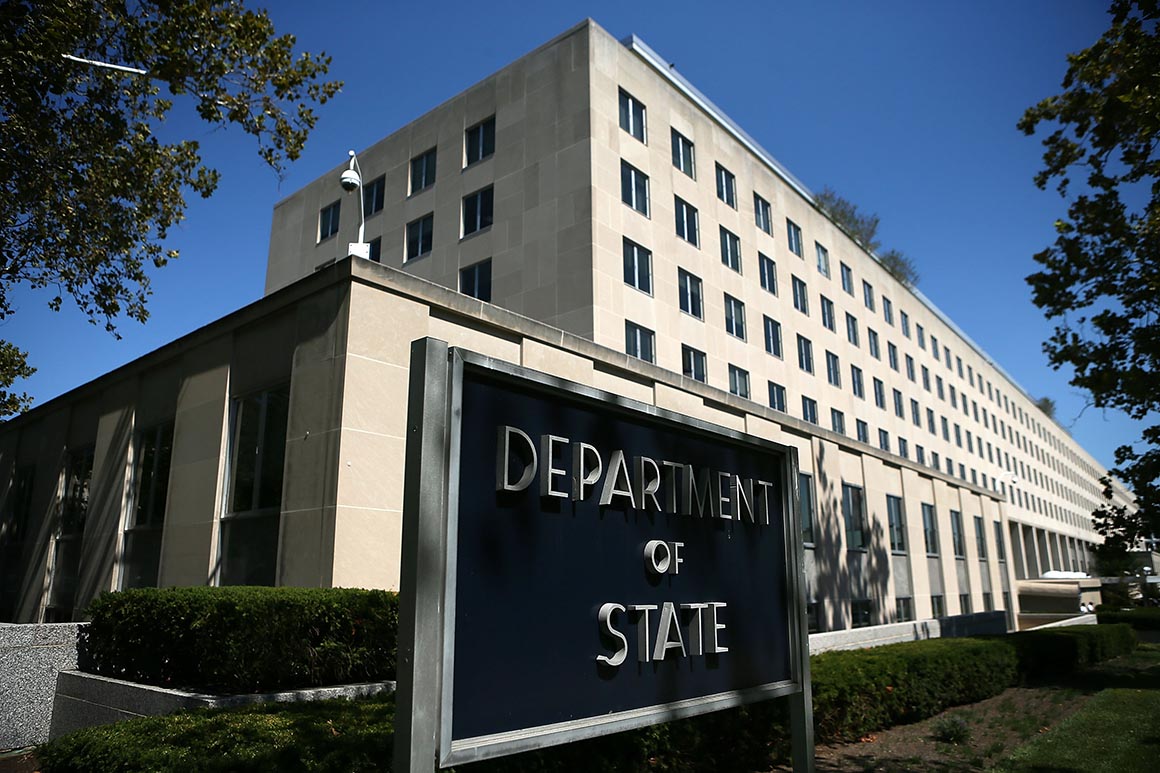
The overall effort, first reported by the media platform Devex, is described as the President’s Response to Outbreaks, or PRO.
Under the proposed initiative, the State Department would appoint a coordinator to oversee nearly every aspect of pandemic preparedness and response — from the global distribution of vaccines and therapeutics to the development of modernized protocols to prevent the spread of an outbreak.
“Having a singular initiative to focus global attention and resources has been an effective model to turn the tide of diseases like HIV/AIDS and malaria,” reads an outline of the new model that U.S. officials planned to circulate on Capitol Hill. “Through PRO the U.S. will assert global leadership for mobilizing private and public partners, multilateral institutions and other bilateral donors to support a global pandemic response that will deliver results for the American people.”
The proposal comes as senior administration officials grapple with ongoing flaws in the federal government’s response to Covid-19, which has pitted top agencies against each other as they work to secure medical supplies for U.S. stockpiles and other nations, and has often resulted in conflicting guidance from the White House and public health officials.
The plan could decrease USAID’s role by consolidating pandemic preparedness under the State Department, which lacks the volume of supply chain experts, epidemiologists and public health experts on staff at USAID. There also are questions about whether the initiative will focus strictly on infectious disease outbreaks or be expanded to include other types of global health issues.
One USAID official familiar with the proposal described it as a “power-grab” by the State Department. Another called it a “turf fight.”
The State Department declined to comment on “purportedly leaked deliberative documents.” A spokesperson for USAID declined to comment.
Some at USAID questioned whether now is an appropriate time to overhaul the existing response model given the ongoing coronavirus crisis. The number of pandemic-related deaths in the United States is nearing 100,000, and the Trump administration is shifting its focus to a swift reopening of the U.S. economy.
But, according to one USAID official, State Department leaders have been frustrated with USAID’s response to the novel coronavirus, feeling it’s been slow and not always aligned with Secretary of State Mike Pompeo’s priorities.
Members of the White House coronavirus task force, led by Vice President Mike Pence, also previously complained about USAID’s distribution of medical supplies to other countries at the height of the Covid-19 crisis, when U.S. hospitals and front-line workers faced shortages of personal protective equipment.
USAID is technically an independent agency, but it is supposed to take policy guidance from the secretary of State, whose department plays a role in USAID’s budget management.
“My read of it is they’re unhappy with USAID,” the USAID official said, speaking on condition of anonymity due to the sensitive nature of the topic. “USAID hasn’t been able to deliver on certain things.”
Documents circulated inside the administration were short on details about which programs at USAID could be relocated under the two components of PRO: America’s Response to Outbreaks, and the Preparedness Initiative for Pandemics and Emergency Response. It will differ from programs such as the President’s Emergency Plan for AIDS Relief and the President’s Malaria Initiative, but will incorporate lessons from them, according to an FAQ.
Aside from working on the coronavirus response, Birx — who could not immediately be reached for comment — holds titles including U.S. special representative for global health diplomacy. She’s been based at the State Department, and her duties include dealing with global HIV/AIDS programs, including PEPFAR.
“The goal at this stage is to develop a unified whole-of-government response and approach to pandemics that will allow us to bring together all of our government’s tools to meet the challenges we will face in this new era of pandemics,” one of the documents reads. “As the discussions progress towards implementation, we will clearly define specific roles and responsibilities across agencies, consistent with their mandates.”
According to the proposal, the ARO coordinator would work with government agencies and the private sector “to ensure the full power and expertise of the United States are leveraged to … prevent, detect, and respond to infectious diseases and mitigate and prepare for future disease outbreaks.”
Source: politico.com
See more here: news365.stream






